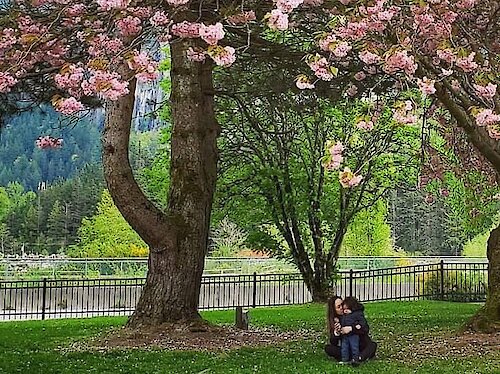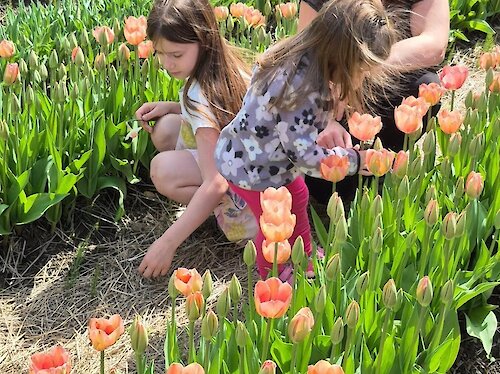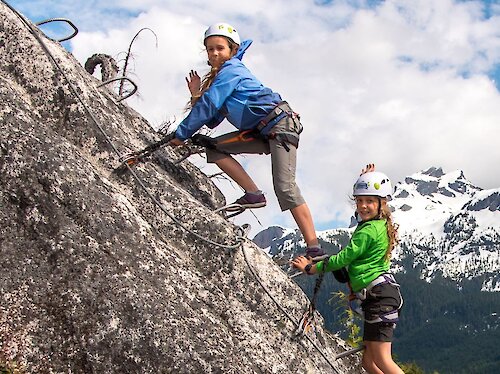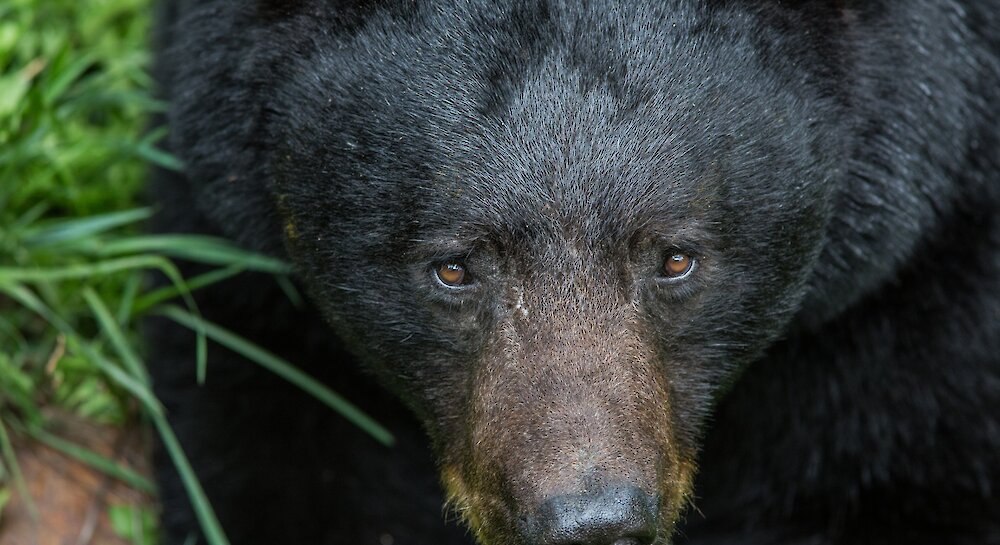Tips for Safety and Survival in the Backcountry
Posted on: November 19, 2024

Always remember the Three Ts:
Trip Planning, Training, and Taking the Essentials
Applying these safety tips can help lessen the risk and ensure your outdoor adventures are safe and responsible.
TRIP PLANNING
To increase your chances of having an enjoyable and safe outdoor adventure, trip planning is essential. This will ensure you know exactly where you’re going, what the conditions and terrain are like, and the weather you can expect on the day. It will also allow authorities to quickly find you if anything does go wrong.
When you’re trip planning, always do the following:
- Plan your travel route
- Know the terrain and conditions
- Check the weather
- Fill out a trip plan
Though it is beautiful, the B.C. backcountry is remote and can be unpredictable. Severe weather is one of the primary hazards, so for any backcountry travel you – and everyone in your group – must be self-sufficient. If you’re travelling in difficult terrain, it's wise for you and your group to have first aid training. You always want to be thoroughly prepared before you head out.
Ensure that you:
- understand and recognize weather patterns
- can read alpine terrain
- know the dangers
- check conditions before heading out
Ultimately, sound judgment and knowing when to turn around and save it for another day are your most important backcountry survival skills.

TRAINING - WINTER
Severe weather and avalanches are two of the primary hazards of the Squamish backcountry, so for any backcountry travel you – and everyone in your group – must be self-sufficient. If you’re travelling in avalanche terrain, ensure that you and your group also have proper avalanche training. No matter which backcountry sport you choose – skiing, snowboarding, snowshoeing or snowmobiling – always be thoroughly prepared before you head out.
Over 30% of incidents reported to BC Search and Rescue occur in winter and they include people such as snowmobilers, backcountry skiers, winter hikers and snowshoers. The top three causes for search and rescue are people getting injured, lost or disoriented or exceeding their abilities.
If you are planning to go into the backcountry this winter, we have some tips and planning tools from BC AdventureSmart so that you can get informed before you head out.
Preparing for winter outdoor recreation involves assessing your current knowledge, skills, and ability, and understanding your limits.
When planning your outdoor excursion, always do the following:
- Obtain the knowledge and skills you need before heading out.
- Know and stay within your limits.
For example, if you’re new to snowshoeing, begin on a more easily accessible snowshoe trail. Consider taking a guided tour to learn from the experts. Build up your endurance on short trails before attempting longer trails or more challenging terrain.
Venturing into backcountry destinations requires knowledge, skills, equipment, and preparation in case of an emergency.
Training Opportunities:
- Join BC AdventureSmart for one of their winter webinars, specifically ‘Snow Safety Education-Backcountry’
- Book any of the free AdventureSmart programs
- Take an avalanche or backcountry course through one of our local providers such as Altus Mountain Guides, Canada West Adventure School or Mountain Skills Academy.
- Join Avalanche Canada for one of their winter webinars or sign up for one of their Avalanche Skills Training courses.
WINTER SPECIFIC SAFETY
From ice thickness, hypothermia and cold water immersion to tree wells and cornices, season-specific safety is critical in reaching your destination. Your destination is HOME. Learn more about winter specific safety.
We hope this helps guide you through a safe and fun winter season playing in our great outdoors.

WHAT TO DO IN AN EMERGENCY
S - T - O - P — Stop Think Observe Plan Then ACT!
The acronym STOP (stop, think, observe, plan, then act) highlights the importance of a survival attitude that involves carefully planned actions rather than irrational behaviour based on fear.
Stay where you are: It's important to recognize that your body only has so much stored energy and that it is essential to spend that energy efficiently.
People who carry on after they become lost usually get further from the trail and from people who are looking for them. Going downhill often leads to natural drainage gullies, which typically have very thick bush, expansive cliffs and waterfalls, making travel and searching more difficult. Staying put reduces the potential search area for SAR, because you will have left a trip plan with a friend, and they will know where to start looking.
If you need help in the mountains and have cell reception, your FIRST ACTION should be to call 911 to let authorities know you’re in need of rescue. The 911 operator will dispatch the local police, or RCMP, and police will place the request for the local SAR group.
When your phone makes an emergency 911 call, it will connect with any cell tower in range, even if it is not from your network provider. (Therefore, a 911 call may go through even if you are not otherwise able to get cell reception where you are.)
If you are familiar with your smart phone’s capabilities, you may know how to obtain its GPS reading. (On iPhones, for example, the GPS coordinates are displayed in compass app if location services are turned on.
We hope this information helps guide you through a safe and fun experience playing in Squamish's great outdoors.

GOING INTO THE BACKCOUNTRY: SPRING/SUMMER
Each spring, all the warm sunshine has outdoor adventure lovers thrilled and chomping at the bit to get out into the backcountry to hike, bike, camp and explore.
Yes, it’s exciting. Yes, it’s enticing… but did you know that BC Search and Rescue volunteers respond to almost 2,000 incidents every year?
We don’t want to be a bummer or anything. We love getting outside and into Squamish's incredible nature. BUT sometimes we need to face some facts. Of these incidents more than half of them occur in summer and the top three causes for search and rescue are people getting injured, lost or disoriented or exceeding their abilities.
If you are planning to go into the backcountry this spring and summer, we have some tips and planning tools from BC AdventureSmart so that you can get informed before you head out
TRAINING - SUMMER
Of the thousands of calls received by BC Search and Rescue each year, more than half of the incidents occur in summer, and the top three causes for search and rescue are people getting injured, lost or disoriented or exceeding their abilities.
If you are planning to go into the backcountry this spring or summer, we have some tips and planning tools from BC AdventureSmart so that you can get informed before you head out.
Preparing for outdoor recreation involves assessing your current knowledge, skills, and ability, and understanding your limits.
When planning your outdoor excursion, always do the following:
- Obtain the knowledge and skills you need before heading out.
- Know and stay within your limits.
For example, if you’re new to hiking, begin on a more easily accessible hiking trail. Consider taking a guided tour to learn from the experts. Build up your endurance on short trails before attempting longer trails or more challenging terrain.
Venturing into backcountry destinations requires knowledge, skills, equipment, and preparation in case of an emergency.
Training Opportunities:
- Join BC AdventureSmart for one of their FREE informative E-learning seminars, specifically the Survive Outside Program.
- Take a climbing or backcountry course through one of our local providers such as Altus Mountain Guides, Canada West Adventure School or Mountain Skills Academy.
- Join a clinic or seminar that teaches topics like compass reading, backcountry tips or paddling safety. Local shop Valhalla Pure Outfitters often provides these short sessions that offer valuable information.

TAKING THE ESSENTIALS
No matter how well you know the terrain or how experienced you are in an activity, always carry the essentials and know how to use them. These are basic survival items you should have in any outdoor situation.
The essentials are:
- Flashlight/headlamp
- Fire-making kit
- Signalling device (i.e., whistle)
- Extra food and water
- Extra clothing
- Navigational/communication devices
- First aid kit
- Emergency blanket/shelter
- Pocket knife
- Sun protection
- Seasonal and sport-specific gear








